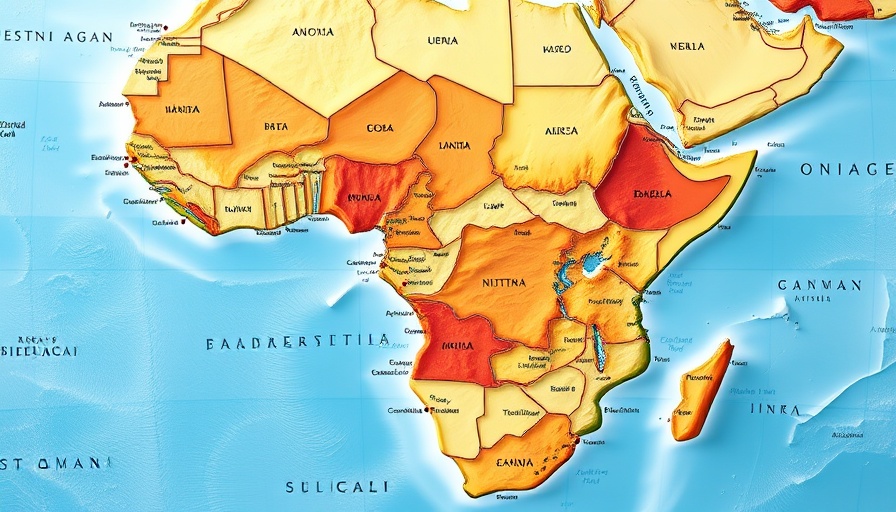
West Africa's Economic Landscape: An Overview
The upcoming visit of leaders from Gabon, Guinea-Bissau, Liberia, Mauritania, and Senegal to the White House signals a pivotal moment in West Africa’s engagement with U.S. trade and investment. This luncheon, hosted by President Trump, is not just a ceremonial affair; it promises the potential to unlock significant commercial opportunities in a region that is increasingly recognized for its strategic value in countering violent extremism.
Understanding the Invitation: What It Means
All five nations have been selected for their geopolitical significance and relative stability compared to their neighbors plagued by terrorism. The recent uptick in violent extremism in the Sahel necessitates strong partnerships. Countries like Gabon and Senegal, with their stable governments, present a stark contrast to hotspots in Burkina Faso and Mali. This meeting indicates a U.S. strategy that aligns security interests with economic collaboration.
Security and Trade: A Double-Edged Sword
While the main agenda focuses on promoting trade, it also reflects on security challenges. Gabon and Liberia, although invited, face scrutiny over high non-immigrant student overstay rates. This paradox raises concerns about the U.S. approach to balancing economic inducements with stringent immigration policies. The ideal outcome would be a synchronized strategy that bolsters economic ties while ensuring national security concerns are adequately addressed.
Differentiating Military Commitments
Interestingly, the military expenditure across these nations varies greatly, influencing their ability to independently conduct counter-terrorism operations. For example, Mauritania's military expenditure constitutes 2.2% of its GDP while Liberia is on the lower end at 0.7%. This discrepancy highlights the challenge of effectively assessing each country's capacity to maintain both security and economic stability.
A Cultural Exchange Beyond Commerce
This high-profile meeting also represents an opportunity for cultural engagement. The more American policies foster economic ties with African nations, the more these nations can be seen as vital partners in global governance. Ensuring that local cultures and socio-political contexts are respected will be crucial to the perception of these partnerships.
Concluding Thoughts: The Path Forward for West African Nations
Ultimately, the White House visit to discuss economic opportunities functions as both a platform for growth and a reflective moment for policy alignment. A successful outcome would mean more than just trade deals; it would signify a robust partnership committed to mutual development. As these countries prepare, they must showcase their commercial proposals alongside their political stability to present a united front for cooperative engagement.
 Add Row
Add Row  Add
Add 


Write A Comment